Numerous supplements on the shelves promise a fast route to shedding unwanted pounds.
Appetite suppressants are products intended to lower hunger, which can lead to eating less and supporting weight reduction.
While some appetite-suppressing medications require a prescription, many are sold over the counter.
Below is an overview of 12 non-prescription appetite suppressants, examining their efficacy and safety.

1. Conjugated Linoleic Acid (CLA)
Conjugated linoleic acid (CLA) is a polyunsaturated fatty acid naturally present in foods such as beef and dairy. It is also available in concentrated supplement form marketed for weight loss.
How it works: CLA has been found to influence genes and hormones that regulate appetite. It may also increase resting energy expenditure, raise lean mass and promote fat loss.
Effectiveness: Although CLA reduces appetite and intake in animal models, human studies have not found it to suppress appetite.
A 12-week trial involving 62 participants reported that 3.9 grams of CLA daily did not affect appetite, body composition, or resting energy expenditure.
While some research shows CLA can promote fat reduction, the overall weight-loss benefits appear small.
For instance, a review of 15 trials found that overweight subjects taking CLA for at least six months lost on average only 1.5 pounds (0.7 kg) more than controls.
Side effects: CLA use can cause digestive upset such as diarrhea and gas. Long-term supplementation may be linked to more severe issues like liver injury and increased inflammation.
Summary CLA is marketed as an appetite suppressant. However, human research suggests it has minimal effects on hunger and weight loss.
2. Bitter Orange (Synephrine)
Bitter orange is a citrus fruit that contains synephrine, a compound that may help lower appetite.
Synephrine is chemically similar to ephedrine, a once-common weight-loss agent that was removed from dietary supplements in 2004 due to serious adverse effects.
Bitter orange extracts are promoted over the counter to support weight loss by reducing hunger.
How it works: Bitter orange is thought to aid weight loss by raising basal metabolic rate (calories burned at rest), thereby encouraging fat breakdown and reducing appetite.
Effectiveness: Research indicates synephrine can increase calorie burn, but its impact on weight loss remains unclear.
Because bitter orange is frequently combined with other stimulants like caffeine in formulations, isolating its effects is difficult.
A review covering 23 studies reported that 20–35 mg of synephrine per day modestly increased metabolic rate and had a small effect on weight. However, some studies showed no weight change or even weight gain following synephrine use.
Side effects: Reported adverse reactions include higher heart rate, raised blood pressure and anxiety. It’s unclear whether these result from synephrine alone or from its combination with other stimulants.
Summary Bitter orange contains synephrine, which may elevate metabolism and support weight loss, but research findings are mixed.
3. Garcinia Cambogia
Garcinia cambogia supplements are among the most popular products promoted for weight loss.
Extracted from the rind of the Garcinia gummi-gutta fruit, garcinia cambogia is used to curb appetite and help reduce weight.
How it works: The extract contains hydroxycitric acid (HCA), which may suppress appetite by increasing brain serotonin levels and decreasing carbohydrate metabolism.
Effectiveness: A review of 12 trials found that individuals taking garcinia cambogia with 1,000–2,800 mg HCA per day for 2–12 weeks lost about 1.94 pounds (0.88 kg) more than placebo groups.
One small study of 28 participants showed garcinia cambogia reduced appetite, increased feelings of fullness and lowered hunger compared to placebo.
However, other trials report little to no benefit for appetite suppression or weight loss.
Side effects: Generally considered safe for many, garcinia cambogia may cause headaches, diarrhea, nausea, irritability and, in rare cases, liver failure.
Summary Some studies indicate garcinia cambogia can suppress appetite and aid weight loss.
4. Glucomannan
Glucomannan is a soluble fiber extracted from the konjac plant’s edible roots.
Because it can absorb up to 50 times its weight in water, it’s used as a supplement to promote fullness and reduce hunger.
How it works: Glucomannan is believed to support weight loss by decreasing appetite, increasing satiety, slowing digestion and reducing the absorption of fat and protein.
Effectiveness: Findings on glucomannan’s weight-loss effects are inconsistent.
A review of six trials reported that 1.24–3.99 grams per day for up to 12 weeks produced short-term weight loss of up to 6.6 pounds (3 kg).
However, researchers concluded the results lacked statistical robustness and called for larger, longer-term trials.
Side effects: Glucomannan can cause constipation, diarrhea, nausea and abdominal discomfort.
Summary Glucomannan is a soluble fiber that may enable short-term weight loss, but study results are inconclusive.
5. Hoodia gordonii
Hoodia gordonii is a succulent plant historically used by southern African indigenous peoples to curb hunger.
Extracts of Hoodia are included in dietary supplements claiming to reduce appetite and support weight loss.
How it works: The exact mechanism is unclear, but some researchers attribute Hoodia’s effects to a compound called P57 (a glycoside) that may act on the central nervous system to reduce hunger.
Effectiveness: There’s scant evidence supporting Hoodia for weight loss, and few human studies exist.
A 15-day trial in 49 overweight women found 2.2 grams of Hoodia daily taken an hour before meals had no impact on body weight or calorie intake versus placebo.
Side effects: Hoodia may produce headaches, nausea, elevated heart rate, hypertension and impaired liver function.
Summary At present, there is no solid evidence supporting Hoodia gordonii for appetite suppression or weight loss.
6. Green Coffee Bean Extract
Green coffee bean extract comes from the raw seeds of the coffee plant and is widely marketed as a weight-loss aid.
How it works: Green coffee beans are rich in chlorogenic acid, which may hinder fat accumulation. The extract also contains caffeine, a known appetite suppressant.
Effectiveness: A recent trial in people with metabolic syndrome found that 400 mg of green coffee bean extract daily significantly reduced waist circumference and appetite compared to placebo.
An analysis of three trials found overweight subjects taking 180–200 mg per day for up to 12 weeks lost an average of 6 pounds (2.47 kg) more than those on placebo.
Side effects: Generally tolerated, green coffee bean extract can still cause headaches and a faster heart rate in some individuals.
Summary Multiple studies suggest green coffee bean extract may lower appetite and support weight loss.
7. Guarana
Guarana has been used for centuries and is promoted for various benefits, including reducing appetite.
How it works: Guarana contains a higher concentration of caffeine than any other plant. Caffeine activates the nervous system and can decrease appetite while boosting metabolism.
Effectiveness: There’s insufficient human evidence to confirm guarana’s appetite-suppressing or weight-loss effects.
Laboratory and animal studies suggest guarana extract may increase metabolic rate and inhibit fat cell formation by altering certain gene expressions.
Side effects: Due to its high caffeine content, guarana can cause insomnia, headaches, jitteriness, elevated heart rate and anxiety, particularly in large amounts.
Summary Guarana — very high in caffeine — may raise metabolism, but more studies are needed to verify whether it suppresses appetite or causes weight loss.
8. Acacia Fiber
Acacia fiber, also called gum arabic, is an indigestible fiber promoted for increasing fullness and curbing hunger.
How it works: Acacia fiber slows gastric emptying, suppresses appetite, promotes satiety and reduces glucose absorption in the gut, which may aid weight management.
Effectiveness: In a six-week trial of 120 women, those taking 30 grams of acacia fiber daily lost significantly more body fat than those given placebo.
Likewise, a study in 92 people with diabetes found that 30 grams per day for three months significantly reduced abdominal fat.
Side effects: Possible adverse effects include gas, bloating and diarrhea.
Summary Acacia fiber may help weight loss by enhancing fullness and decreasing appetite.
9. Saffron Extract
Saffron extract is obtained from the stigma — the part of the flower involved in pollen collection — of the saffron plant.
How it works: Saffron contains compounds thought to elevate mood and thereby increase sensations of fullness.
Effectiveness: One trial of 60 overweight women showed that 176 mg of saffron extract daily significantly reduced snacking and resulted in greater weight loss than placebo.
Although promising, larger and longer trials are needed to confirm saffron’s impact on appetite and weight loss.
Side effects: Saffron is usually well tolerated but can cause dizziness, fatigue, dry mouth, anxiety, nausea and headaches in some people.
Summary Some evidence indicates saffron extract may help reduce hunger and support weight loss.
10. Guar Gum
Guar gum is a fiber extracted from the Indian cluster bean (Cyamopsis tetragonoloba).
How it works: As a bulking agent in the digestive tract, guar gum slows digestion and increases fullness, which can reduce appetite.
Effectiveness: One study found that 2 grams of guar gum daily led to significant reductions in hunger and a 20% decrease in between-meal snacking.
Other studies report similar effects, suggesting guar gum may lower cravings and total calorie intake.
However, guar gum has not been conclusively proven to promote actual weight loss.
Side effects: Guar gum can cause abdominal discomfort, diarrhea, cramping, gas and bloating.
Summary Guar gum is a fiber that may reduce snacking and overall calorie consumption.
11. Forskolin
Forskolin is a bioactive compound from the Coleus forskohlii plant.
How it works: Forskolin is claimed to support weight loss by lowering appetite, boosting metabolic rate and increasing fat breakdown.
Effectiveness: Human research on forskolin for appetite suppression and weight loss is limited.
Several trials have found that doses up to 500 mg per day did not reduce appetite, lower food intake or promote weight loss in overweight subjects.
Side effects: Little is known about adverse effects, though one study reported diarrhea and increased bowel movements.
Summary Forskolin appears to have minimal effect on appetite or weight loss, but additional research is ongoing.
12. Chromium Picolinate
Chromium is a mineral often used to help regulate blood sugar, decrease hunger and curb cravings.
How it works: Chromium picolinate is a form of chromium that is well absorbed and may reduce appetite and cravings by influencing neurotransmitters that govern mood and eating behavior.
Effectiveness: A review of 11 trials including 866 overweight or obese individuals found that daily supplementation with 137–1,000 mcg of chromium for 8–26 weeks produced modest reductions in body weight (about 1.1 pounds or 0.5 kg) and a 0.46% decrease in body fat.
Side effects: Potential adverse effects include loose stools, vertigo, dizziness, headaches and skin rashes.
Summary Some research suggests chromium picolinate can reduce appetite and help with modest weight loss.
The Bottom Line
Many supplements claim to suppress appetite and accelerate weight loss.
However, only a small number of these products have adequate evidence demonstrating they reduce appetite effectively.
Although certain supplements — such as acacia fiber, guar gum and chromium picolinate — have shown consistent appetite-reducing effects, they can still cause side effects like headaches, diarrhea and abdominal discomfort.
There are more reliable, evidence-based strategies to manage appetite, cut snacking and lose weight without depending on dietary supplements.
Limiting processed foods, reducing overall calorie intake and increasing physical activity remain proven approaches for achieving weight loss.



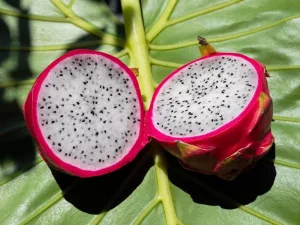
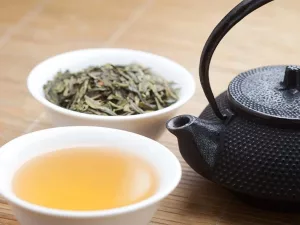



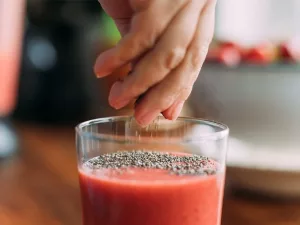
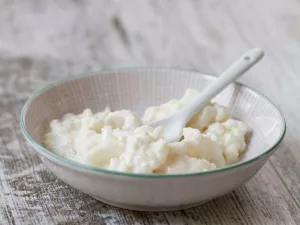



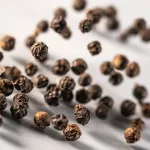




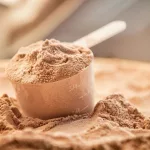


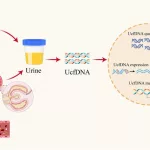



Leave a Reply
You must be logged in to post a comment.